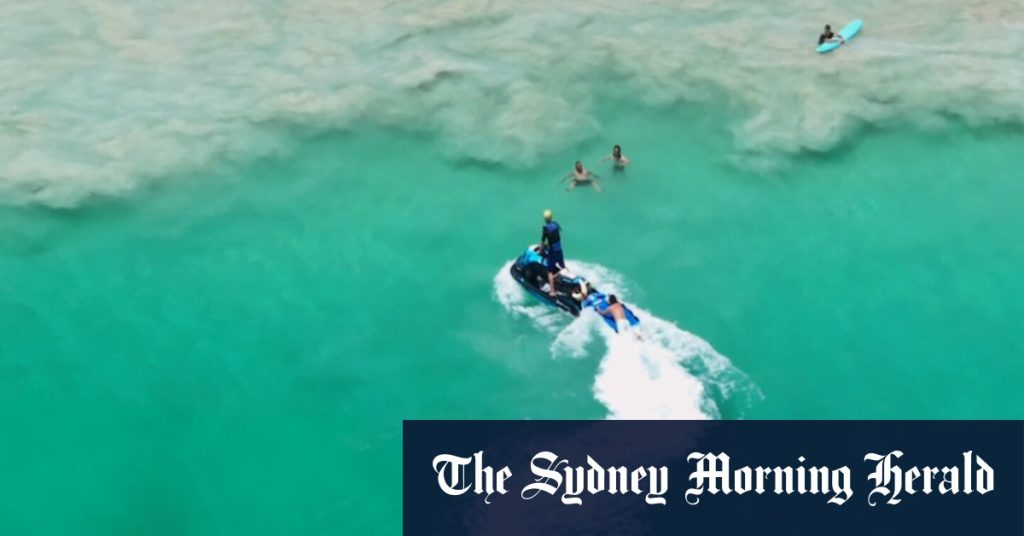The beaches of Stirling, Western Australia, have witnessed a dramatic surge in rescues during the 2024/25 financial year, with the number nearing a record-breaking 800. Veteran lifeguard John Snook, who has led the Stirling beach services team for 25 years, attributes this increase to a combination of factors, primarily a lack of awareness and respect for the ocean’s inherent dangers. Many individuals, including tourists, international students, and recent migrants, particularly at Scarborough Beach, lack fundamental ocean safety knowledge due to differing cultural backgrounds and upbringing, placing them at higher risk. Furthermore, the post-COVID shift towards flexible work arrangements has led to increased beach attendance on weekdays, contributing to the rise in rescue incidents. The Stirling lifeguards have responded to a variety of situations, from aiding struggling swimmers to rescuing capsized boaters and even retrieving individuals adrift on inflatable rafts.
The surge in rescues performed by the Stirling lifeguards reflects a broader, alarming trend across Western Australia. Surf Life Saving WA (SLSWA) data reveals a significant increase in both rescues and fatalities along the state’s coastline. In just a six-week period between December 1, 2024, and January 12, 2025, ten coastal drowning deaths were recorded, a staggering 233% increase compared to the same period the previous year. SLSWA services also conducted 264 rescues during this timeframe, a 120% increase from the previous summer. The total number of coastal drowning deaths since July 1, 2024, has reached eleven, underscoring the urgency of addressing ocean safety concerns. This alarming rise in incidents highlights the importance of the Stirling lifeguards’ work and the increasing demand for their services.
This alarming increase in coastal incidents underscores the critical role played by the Stirling lifeguards, who work in close collaboration with the Scarboro and Trigg Island Surf Life Saving Clubs to ensure beachgoer safety. Their dedication and expertise are vital in responding to the growing number of emergencies and preventing further tragedies. The team’s proactive approach, combined with collaborative efforts with local surf lifesaving clubs, provides a crucial safety net for beachgoers. The partnership between the Stirling lifeguards and the surf lifesaving clubs allows for coordinated responses and effective resource allocation, enhancing their ability to address a wide range of emergencies.
Mark Irwin, the City of Stirling mayor and a former president of the Scarboro SLSC, emphasizes the tragic nature of the recent spate of drownings at WA beaches, serving as a stark reminder of the ocean’s power. While encouraging beach enjoyment, Irwin stresses the importance of prioritizing safety by adhering to guidelines provided by lifeguards and paying close attention to ocean conditions. He urges individuals to swim between the designated flags, obey warning signs, learn to identify rip currents, stay within their swimming capabilities, refrain from mixing alcohol consumption with swimming, and seek advice from surf lifesavers whenever necessary. His message emphasizes personal responsibility and informed decision-making as crucial aspects of beach safety.
Irwin’s advice underscores the proactive approach necessary for beach safety. Swimming between the flags ensures the presence of trained lifeguards who can quickly respond to emergencies. Heeding warning signs provides valuable information about potential hazards specific to the area. Recognizing rip currents, powerful channels of water flowing away from the shore, is essential for avoiding dangerous situations. Acknowledging one’s swimming limitations prevents overexertion and potential distress in the water. Avoiding alcohol consumption before or during swimming maintains clear judgment and physical coordination, crucial for navigating ocean currents and responding to unexpected situations. Finally, consulting with surf lifesavers allows individuals to benefit from their expertise and address any specific concerns or questions they may have about beach conditions or safety procedures.
The tragic rise in drowning incidents and the increasing frequency of rescues highlight a pressing need for enhanced public awareness and education regarding ocean safety. While lifeguards play a crucial role in immediate response and rescue efforts, individual responsibility and informed decision-making are paramount in preventing these tragedies. By understanding the inherent dangers of the ocean, respecting its power, and adhering to safety guidelines, beachgoers can significantly reduce the risks associated with aquatic activities and ensure a safe and enjoyable experience. The collaboration between lifeguard services, surf lifesaving clubs, and local authorities in promoting ocean safety awareness is essential to mitigating the risks and fostering a culture of responsible beach behavior.

